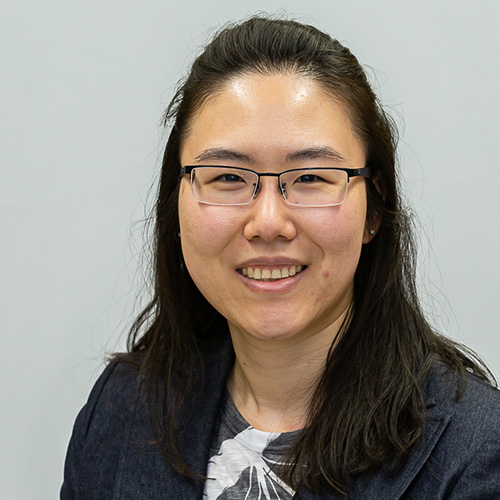Scientists in a law firm: The job of a patent agent
The world of law can seem a universe away from biological research, but in certain branches of law, scientific knowledge is essential. One of these is patent law, where a person must be familiar with scientific principles to understand the novelty of the ideas being patented.
A patent agent writes and submits patent applications for clients who want to patent intellectual property. To find out about how scientists can play a role in patent law, I spoke with two patent agents, Xiaoli Weng at Arnold & Porter and Adrienne Cohen at Morrison Foerster.
A patent agent doesn’t have to be a lawyer; instead, they must have a strong background in science. Then, to prove they know the ins and outs of patent law, they must pass the patent bar exam, which is distinct from the bar exam lawyers take.
First, a bit on the patent bar
Law firms with patent agents are usually willing to hire applicants with scientific expertise who have not yet passed the patent bar and then allow them to train and learn about the law as employees. A person can’t be a patent agent before passing the exam, but they can be employed in roles such as scientific advisor or tech specialist.
Weng and Cohen went this route, and both described their work in the law firm before passing the bar as very similar to being a patent agent but with more supervision.
“You get trained in doing everything related to patent prosecution,” Weng said, “and your mentor or supervisor would review and revise your work and perform the necessary signing and filing.”
Once an employee has passed the patent bar, they can become a patent agent.
Not everyone can take the patent bar. The U.S. Patent and Trademark Office states, “An applicant applying for the examination must demonstrate to the Director of the Office of Enrollment and Discipline (OED) that they possess the scientific and technical training necessary to provide valuable service to patent applicants.”
A degree in the sciences can fulfill this requirement. A Ph.D. is not required to take the patent bar; a master’s or even a bachelor’s degree can satisfy the scientific background requirement. But law firms are more likely to hire Ph.D.s as patent agents because they have more in-depth knowledge and ability to learn new topics quickly.
Different paths to the job
Because law school isn’t necessary to be a patent agent, there is not one typical way of becoming one. Cohen and Weng took different paths.


After her Ph.D., Cohen went straight into a law firm to work on patents. That was not always her plan, however; she started her Ph.D. at Columbia University intending to be a principal investigator with her own lab. She discovered along the way that the academic environment was not for her.
“When I came to that slow realization, I started reflecting on what aspects of the last six years in grad school I really enjoyed,” she said, “what are the aspects where I felt like I really thrived?”
Cohen realized she enjoyed the intellectual work more than the bench work, so she considered patent law and consulting. After exploring consulting, she eventually ruled it out. She then methodically researched types of law firms doing patent work and compared what they were looking for.
“Some want you to come in having done the job, having passed the bar,” she said. “My company made it clear that they would train from the ground up. I said, ‘Yes, that’s the kind of company I want to work for.’”
Weng pursued a postdoc before turning to patent work. “The way I did it is maybe a little unusual,” she said.
After graduating with her Ph.D. from Johns Hopkins University, she moved to a postdoc at the National Institutes of Health. “I was so stressing out about what to do after,” she said.
The NIH offers many career-oriented classes through the Foundation for Advanced Education in the Sciences. Weng took several, including one on patent-related work during which she learned she could volunteer at the tech transfer office where the staff works on engaging partnerships and collaborations for the development and commercialization of inventions and other research products. She started working a few hours a week at the office, which she described as a “gateway into patent law.”
After about two years of bench postdoc work, Weng moved into the tech transfer office full time. She was still working on a postdoctoral fellowship, just no longer a bench-oriented one. The next year, she began working full time at a law firm. She initially worked remotely due to COVID-19 restrictions, but she now does more in-person work.
A day in the life
Cohen described the heart and soul of the job: “We will write the (patent) application, make sure it’s in line with the science and the business goals, and then we will file that…. If you hate writing, this is not the job for you.”
Weng agreed about the intensity of writing, which she described as, “very much a mix of science, technical and legal.”
Both stressed the steep learning curve, writing in this new way in the new world of law, but both also said they received a lot of one-on-one training.
“It can be a pretty painful process,” Weng said. “You write your first draft, and your supervisor gives you all these red lines and suggestions. But the more you do it, you see similar situations; you slowly build up your own template language. My first assignment took me maybe five times as long to complete, multiple drafts back and forth. The learning curve is crazy.”
Nowadays, it’s different, she said. “I often come up with a draft, and it's pretty much good to go. I think for most people, in six months to a year you get your first drafts to be in good shape.”
In addition to learning how to write patent applications, agents must learn about the science that is being patented. An agent can’t assess the novelty of an invention if they don’t understand the state of the field and the details of the idea. So reading up on the science is a large part of the work as well.
A patent agent has freedom in choosing the clients and projects they work with. “The sky is the limit in terms of what technologies we work with,” Cohen said. “You can really build a broad scientific base; you have the opportunity to lean into what you really want to learn about.”
Cohen said agents can choose to focus their time and energy on small startups, big pharma or even specific research topics such as RNA therapeutics.
With this freedom comes the concept of “billable hours,” meaning that patent agents must log their time spent on each case or task, “down to one tenth of an hour,” Weng said. They need to use time management and planning so they don’t end up with 80 hours of work in one week or no work the next week. Even so, most patent agents are salaried, rather than paid hourly by the firm or the clients.
Differences from academia
Cohen and Weng both prefer the atmosphere in a law firm to that in academia.
“What I really like about the law firm environment is how organized things are,” Weng said.
Weng likes having tasks with clear instructions about deliverables, set deadlines, a great internal docketing and document management system and a general culture of being responsive and efficient.
“It’s a breath of fresh air if you are the type that enjoys working in an organized environment,” she said of the law office. “This job is extremely regimented, extremely structured.”
Cohen also emphasized the structure of the job, as well as the direct and efficient way of working and interacting with coworkers.
Is this job a good fit for you?
Both Weng and Cohen said they enjoy being able to learn about so many scientific topics and mentioned how exciting it is to be a part of the process of a new invention or drug.
“If you enjoy learning and getting acclimated to different topics, it’s a good thing,” Weng said.
In addition to the excitement and the learning, cultural aspects should be considered when thinking about job fit.
“I really enjoy how standardized everything is and how consistent things are,” Weng said. “All of our communications are very professional and formal. The job is extremely detail oriented and watertight. We try not to make any mistakes, basically. I honestly love it. It can get really tiring, though, for someone with the wrong personality. This is a great fit if you’re someone who needs structure.”
Cohen voiced similar thoughts.
“You need a lot of attention to detail,” she said. “If you mess up the sequences in the sequence listing, the patent may not be worth the paper it’s printed on. It could be billions of dollars down the drain if you get things wrong on the patent application.”
Cohen spends a good amount of time reviewing documents and catching mistakes. “If that’s the kind of work you find mind numbing,” she said, “you will find this job mind numbing.”
Summary
A love of learning and writing, the ability to thrive in a structured environment and an intense driving attention to detail are the qualities a good patent agent needs.
“I really want to highlight how brilliant these people are,” Cohen concluded. “Humble and compassionate and kind.”
Enjoy reading ASBMB Today?
Become a member to receive the print edition four times a year and the digital edition monthly.
Learn moreFeatured jobs
from the ASBMB career center
Get the latest from ASBMB Today
Enter your email address, and we’ll send you a weekly email with recent articles, interviews and more.
Latest in Careers
Careers highlights or most popular articles

Upcoming opportunities
ASBMB's PROLAB award helps graduate students and postdoctoral fellows spend up to six months in U.S. or Canadian labs.

From humble beginnings to unlocking lysosomal secrets
Monther Abu–Remaileh will receive the ASBMB’s 2026 Walter A. Shaw Young Investigator Award in Lipid Research at the ASBMB Annual Meeting, March 7-10 in Washington, D.C.

Chemistry meets biology to thwart parasites
Margaret Phillips will receive the Alice and C. C. Wang Award in Molecular Parasitology at the ASBMB Annual Meeting, March 7-10 in Washington, D.C.

Decoding how bacteria flip host’s molecular switches
Kim Orth will receive the Earl and Thressa Stadtman Distinguished Scientists Award at the ASBMB Annual Meeting, March 7–10, just outside of Washington, D.C.

Defining JNKs: Targets for drug discovery
Roger Davis will receive the Bert and Natalie Vallee Award in Biomedical Science at the ASBMB Annual Meeting, March 7–10, just outside of Washington, D.C.

Upcoming opportunities
No matter where you are in your career and what future path you aspire to, everyone needs leadership skills. Join ASBMB for practical strategies for building and practicing leadership skills.

